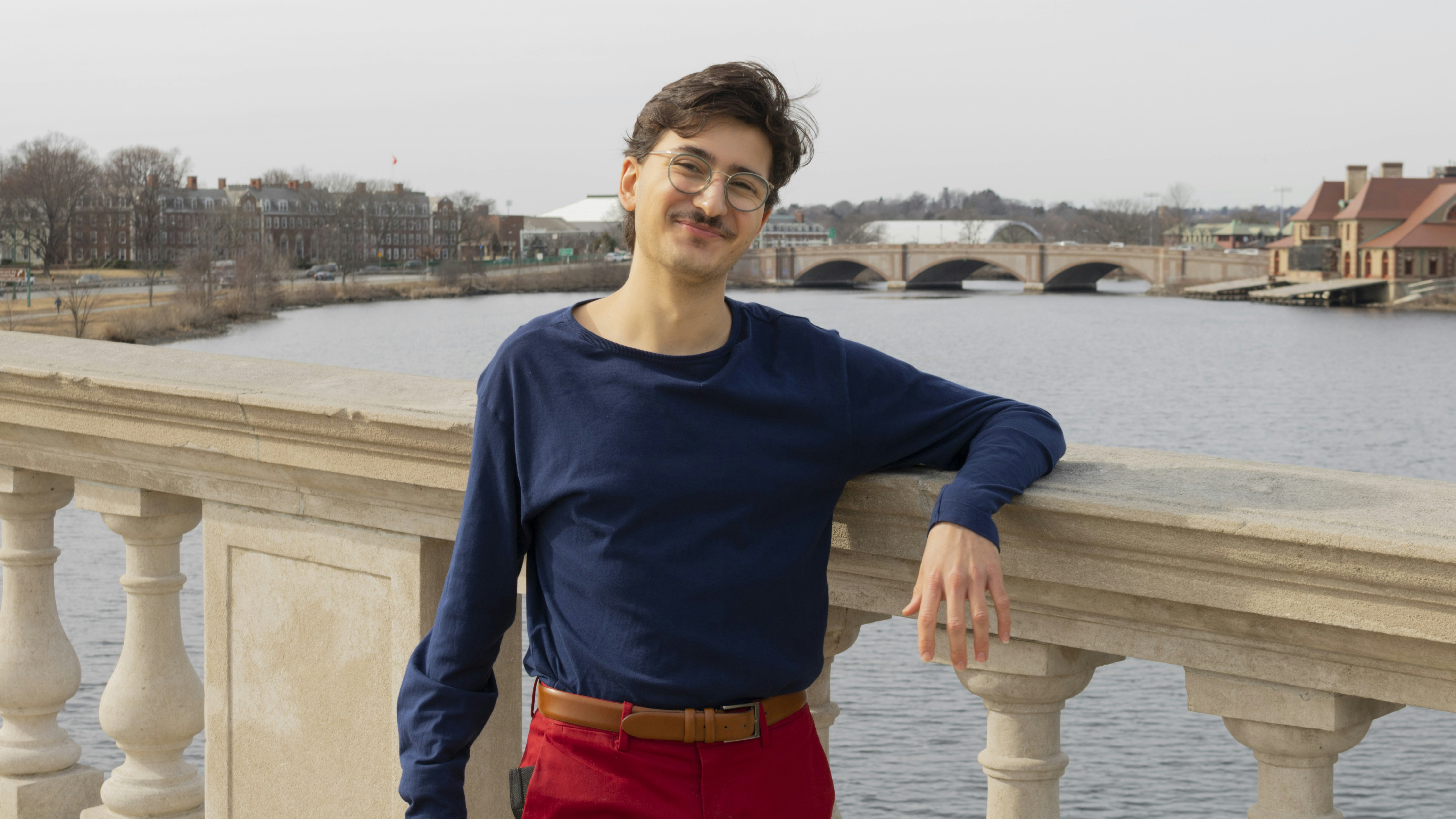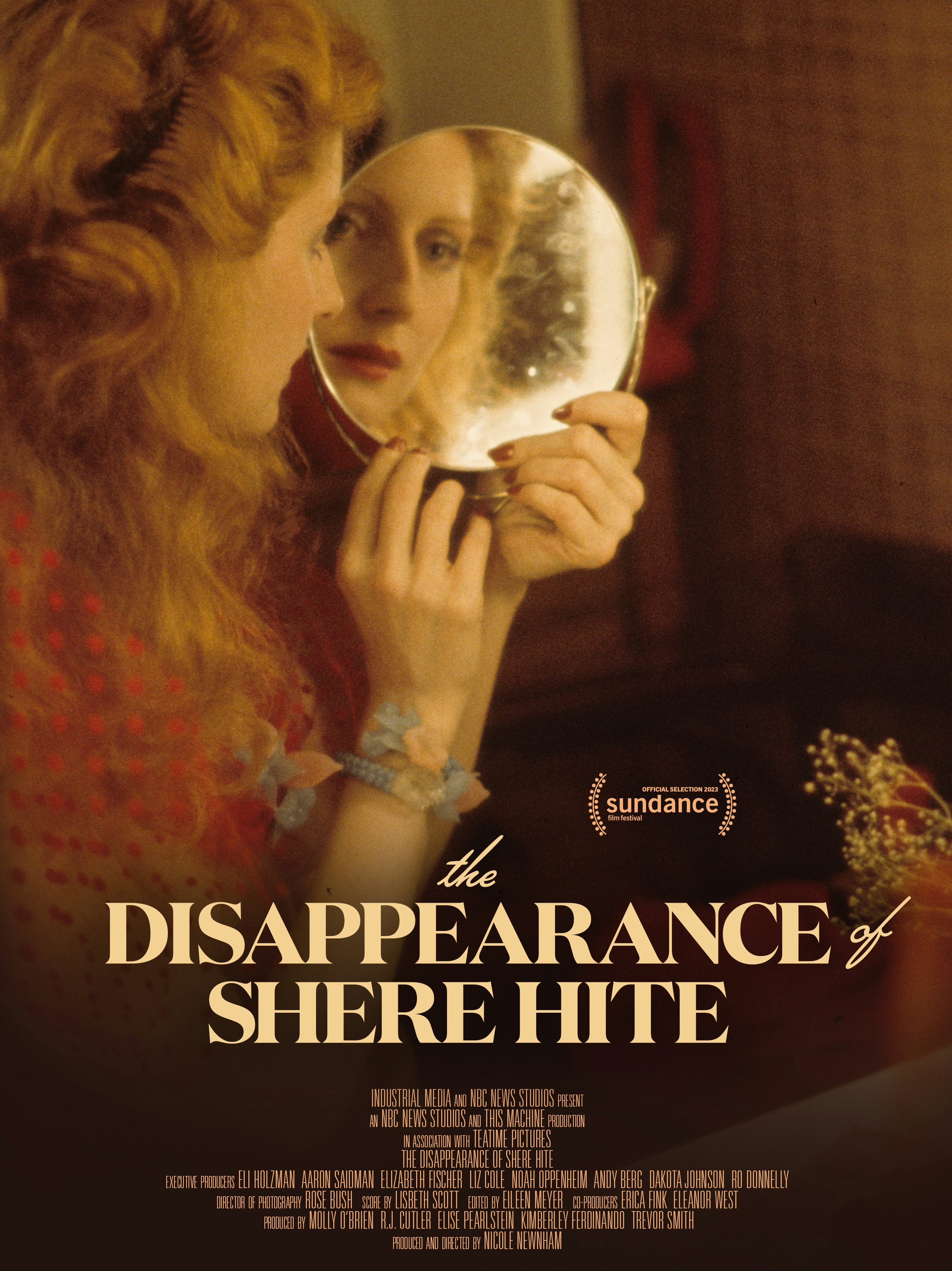Diving In

For the graduating senior Alejandro Eduarte, COVID lockdown inspired creative focus and work on a documentary film.
Like his classmates, Alejandro Eduarte ’23 faced fear and uncertainty during his year and a half away from campus due to COVID. He also faced his future, planning, prioritizing, and relying on his new sense of direction to land a job with a professional film while still an undergrad.
“It was a time of deep crisis, but it also forced me to think about the things that I wanted to do here at the College,” Eduarte says. “And it made me realize I was just going to have to dive in when I returned.”
Back on campus in September 2021, he took the plunge, building on his passion for the arts, film, and literature and embracing every Harvard opportunity he could to feed his creativity. An English concentrator, he penned a time-travel novella for his senior thesis that traversed Paris, Santiago, and Detroit across three decades and then created an accompanying 19-minute film. He wrote film notes for the Harvard Film Archive. And he conducted research for The Disappearance of Shere Hite (2023), a documentary about the author and sex educator by the Oscar-nominated director Nicole Newnham that premiered at the Sundance Film Festival in January.
As one of the film’s primary researchers, Eduarte spent months in the Schlesinger Library, where the Shere Hite Papers are housed, poring over photographs, copies of her original sex surveys, correspondence, and random ephemera—such as an airplane napkin and opera brochure filled with Hite’s thoughts—and compiling detailed notes about the material. During weekly meetings, he discussed his findings with the film’s production team.
“It was this continual process of figuring out how we could keep deepening her story,” says Eduarte, “based on what we knew from the archives.”

Eduarte dove deeply into the Shere Hite Papers at the Schlesinger Library for a documentary film that premiered at Sundance earlier this year. Photo by Mike Wilson
The Harvard senior and Lowell House resident saw his creative and intellectual paths converge early on. He inherited a fascination with texts from his parents who placed a “heavy focus on literature,” and he participated in youth programs at multiple theaters in Minneapolis, Minnesota, collaborating with young people and professional teaching artists on a range of shows. The work involved exploring all areas of a theatrical production, including writing, music, lighting, and more. Those varied experiences, he says, offered him a true window on a life focused on the arts. “There was a real sense that there was a stable infrastructure for how artists could make a living doing what they love.”
When considering college options, Eduarte wanted an environment that would inspire his artistic and intellectual curiosity. An acting mentor suggested he consider Harvard, where people would “really challenge me and open my mind, and I’d encounter many different worldviews,” recalls Eduarte.
His mentor was right.
During his four years with the College, Eduarte engaged with a number of mind-altering scholars, such as the award-winning author, Radcliffe Alumnae Professor, and Michael Garvey Professor of History Tiya Miles. Eduarte worked with Miles in the summer of 2020, studying digitized material at the Schlesinger and at other Harvard collections to inform the syllabus for her course Abolitionist Women and Their Worlds.
Abolitionist Women was funded by Radcliffe and Harvard’s Faculty of Arts and Sciences as part of the Schlesinger’s collaboration with the Andrew W. Mellon Foundation on the Long 19th Amendment Project. The project, which supports scholarship and innovative teaching around the history of gender and voting rights in the United States, provided funding for course development tied to the Schlesinger collections and research assistance. Miles was one of two recent grant winners along with Durba Mitra, the Richard B. Wolf Associate Professor of Women, Gender, and Sexuality and acting director of the Schlesinger Library, who used the grant to develop her course Solidarity: Transnational Women's Rights from Suffrage to NGOs and a corresponding current library exhibition, Solidarity! Transitional Feminisms Then and Now.
“[Miles] instilled in me the fact that there are always deeper layers to go when you encounter an archival object,” says Eduarte, “which was just impeccable training for the rest of my work.”
—Alejandro Eduarte
In the fall of 2020, that work involved the Radcliffe Research Partnership program. Eduarte connected with 2020–2021 Radcliffe-Film Study Center Fellow/David and Roberta Logie Fellow Crystal Z Campbell and conducted remote research for Campbell’s experimental film SLICK, about the legacy of the 1921 Tulsa Race Massacre.
A year later, members of the Shere Hite documentary team contacted Radcliffe administrators to identify students who could help them access Hite’s Schlesinger collection. For the producer Kimberly Ferdinando, Eduarte’s preparation and enthusiasm for the material stood out.
“When we met with him, Alejandro had already looked into Shere Hite, into the collection,” she says. “He had read her book; he had watched our director’s films. He just made it so clear that he would be a perfect fit for our team.”
The film’s director says Eduarte’s role went beyond mere fact finding. He watched every rough cut of the film and offered up feedback and suggestions for other material he’d reviewed that might be of use.
“He has a very expansive, empathetic, heart-based way of engaging with things and with people, and he brought that to Shere and to looking at her and exploring her story,” says Newnham, who called Eduarte “an enormous asset to the project.”
Film work is a likely future option, says Eduarte—so, too, is graduate school at a later date. But wherever he lands, he knows he’ll be ready thanks to his College experience.
“There’s been so much openness here at Harvard and such a grounding in theoretical and practical work, and I’ve gotten to work on so many different kinds of projects,” Eduarte says. “I really feel prepared for whatever comes next.”
Colleen Walsh is a freelance writer.







